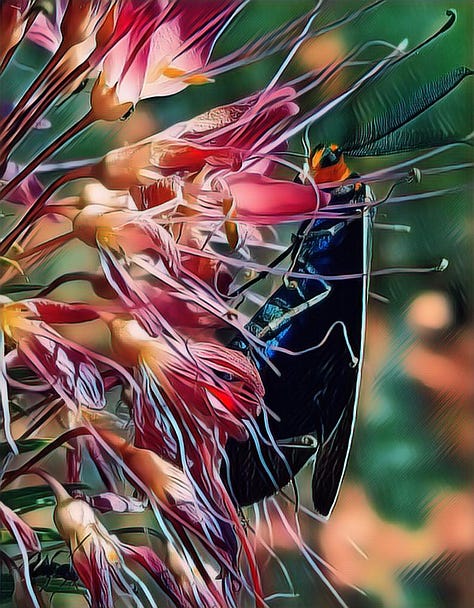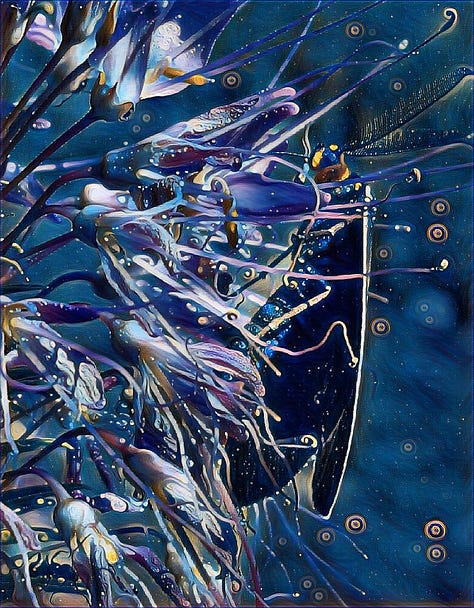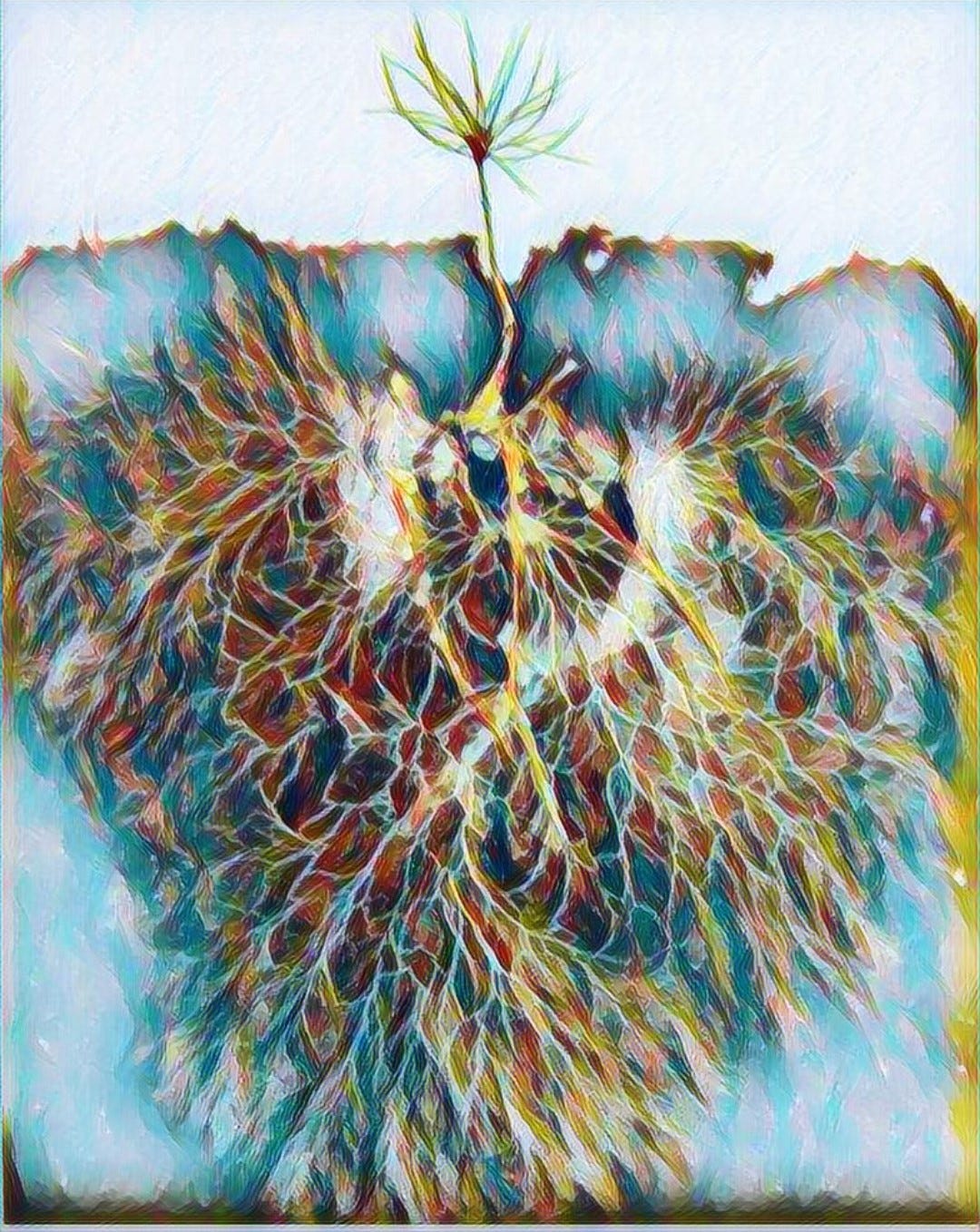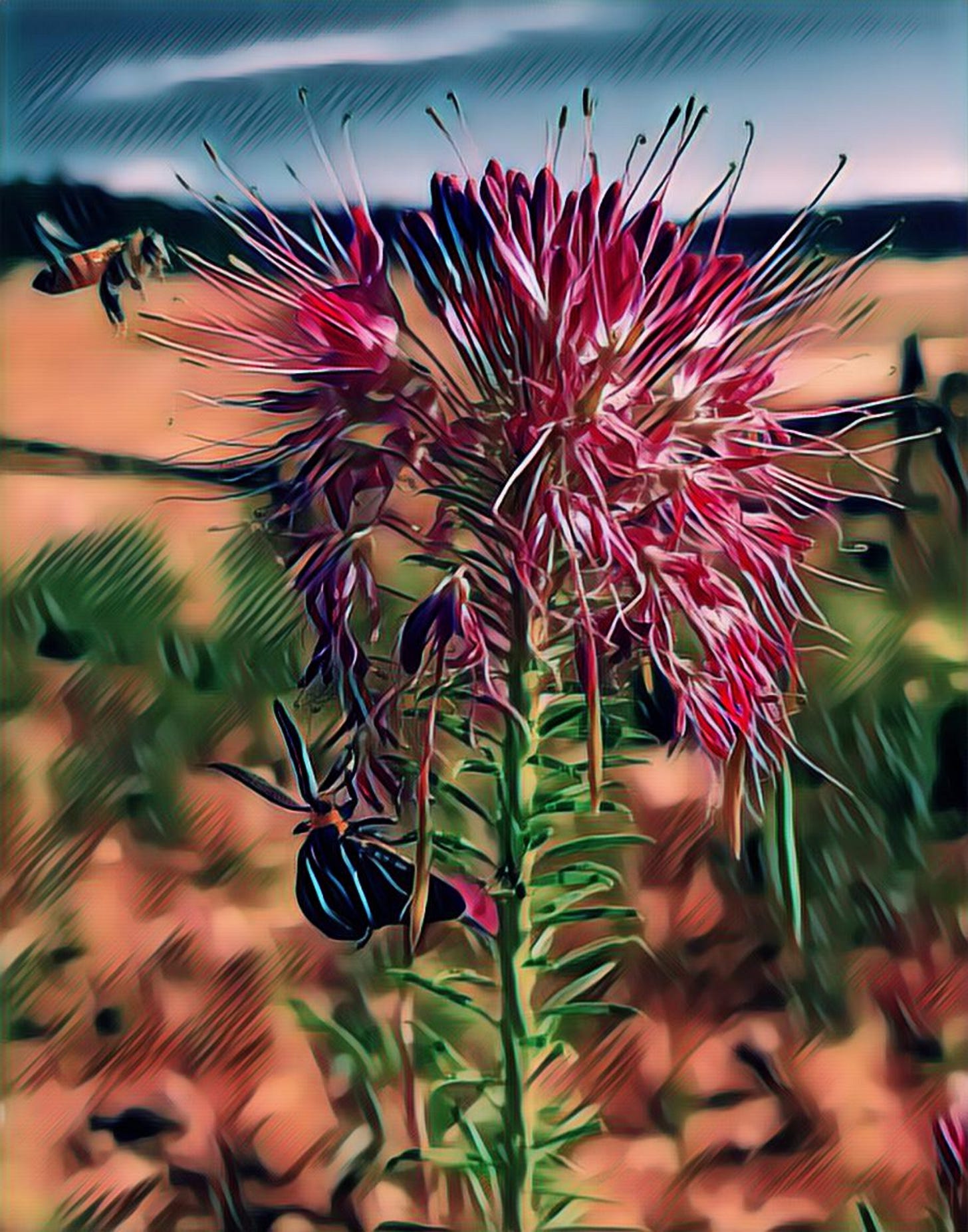Coming of Age in an Apocalypse
Divination. It was fifth grade when I realized I might be gay, to the deep resounding beat of Queen, Another One Bites the Dust. Something tough and bright in one of the eighth-grade girls struck me.



Is it normal for nine-year-olds to write poems for a nuclear holocaust, ones that wistfully imagine the earth carrying on and humanity swiped from its surface?
I had no idea that nature could not persist in the aftermath. In my poem, which was published in the activist newspaper my father edited, everything got incredibly quiet. Green things sent their tendrils up and broke the ugliness of civilization down.
When I was nine, we lived on the banks of the Trinity River in Northern California, an incredibly lush place that won all the battles in gardening. We knew that we merely held the wild back through constant weeding, rototilling, fencing, mowing, weed whacking. The vines of blackberries, the bodies of oaks and madrones, star thistles and river drunk grasses, piles of leaves and needles could quickly obscure and devour our paths.
Moss grew bright and sudden on trees and rocks and in shallows.
The loamy mess of the woods got into our fingernails and noses, swept us along, sucked us in, whipped our faces, scraped our knees.
Deer munched the vegetable patch, until my father put in an enormous fence with ever diminishing openings in the wire meant to keep out the smallest of creatures. The bottom rungs he buried beneath the surface. Once he borrowed a gun and waited up, to watch. I slept through the shot that shattered the silence. He had made his stand, only to wound the deer. This haunted him, he said. He imagined she probably limped off to suffer for hours before dying somewhere in the darkness. All alone, he said.
Once, he planted rows of tiny marijuana plants and my mother and sister secretly pulled them up. They blamed a neighbor, protecting themselves from his rage. My mom joked about a memoir she would write. The title would be “Roach Clips in my Demitasse.”
Demitasse, the word for the delicate cups and saucers on my great grandmother’s hutch.
Sometimes, dinners involved talk of how the government was listening and lying and secretly selling drugs and weapons and hell bent on nuclear annihilation. Our relatives had been poisoned by DDT and were dying of cancer. The water was running out. We had fled the city in 1977.
When the Jonestown massacre was followed by the assassination of San Francisco’s Harvey Milk and Mayor Moscone, my mom had said she thought we had left in the nick of time.
When anything got lost, we would tease my father that it had been stolen by a “big black man with a machine gun,” which always made him stop yelling and laugh. It was the mid-70s. I know now it was white people making light of white supremacist fears. Externalization was a high art in our home. I was often blamed, grabbed up by my father, ripped from my innocent play.
But the apocalypse was out there.
My plan at the time had been to become a veterinarian so that I could live in a cave and have something to offer the animals I would know and love. I did not care much for humankind. I wanted to retreat from the world, from the fighting and the danger of my father, from the empty tummy and the dread and yearning of poverty. I would live off the land with friends, with foxes, rabbits, otters, deer.
My father said, “Good luck with that. What about nuclear annihilation?”
I believe the refrain in my poem, went something like, “the bombs blow up, but life goes on.”
The threat of atomic war receded over the years. One day, I put it in the large category of things over which I am powerless. I have savored a friend’s whimsy: just assume the apocalypse already happened, she said.
We are already living in the aftermath.
Coming of age in an apocalypse. It was fifth grade when I realized I might be gay, to the deep resounding beat of Queen, Another One Bites the Dust. Something tough and bright in one of the eighth-grade girls struck me. I would watch her among the cheerleaders practicing their routine over lunch breaks.
Are you ready? Hey, are you ready for this?
Are you hanging on the edge of your seat?
Out of the doorway the bullets rip
To the sound of the beat, yeah
At night I would hug my stuffed koala bear and whisper the girl’s name. In the day I would tell no one. No one. Until I was twenty. All around me were warnings. Bullies invoked dykes and fags and queers and homos. There were things we ought not talk about, hundreds of shameful things that tomboys could hope to one day outgrow.
I gave up my plan of the cave, replaced it with a vision of being a doctor and leaving the country, going into other cultures, seeking a tradition of social justice that I could neither find nor make here. Then, I met people in anti-war demonstrations in college who showed me how to be part of remembering and making traditions here at home. My first girlfriend. My feminist collective. My women’s history professor. I became a historian.
I put the apocalypse in the past for many years.
After the election of 2016, so many famous people died, David Bowie and Prince, Princess Leah, icons of an expectant age seemed to give up.
In the early 70s, while I, age 4, was listening to “Free to Be You and Me” and playing New Games, where everyone wins, such joyful playtimes, carried along in a giant cookie machine made of hippie dads and moms or lifting a giant earth ball above the ground, all of us holding her in our hands, innocent in our high waters and tennies—the Right had begun slowly dismantling the middle class.
In 2016, this apocalypse, a young trans boy left the planet. Suicide of another beautiful young person, pictured on social media in hot pink make-up over closed eyelids with tiny hearts drawn at his brow, gilded with glitter. Glitter, glam, Major Tom, sung by a space station astronaut, drifts into space, peacefully: eulogy to the dead rocker.
But here, it went off like a bomb. I listened with jagged breath.
Another one bites the dust and another one’s gone and another one’s gone and another one’s gone. Another one bites the dust.
I don’t fault myself for being ignorant at age nine of the complete and total devastation that one bomb would cause. Not until I was seventeen, at a speech given by Helen Caldecott, wherein she described how nuclear winter would darken and starve my homeland for miles, could I understand. I wept then, as she took us step by step through the process.
We were meant to react to this threat positively, to commit ourselves to activism. At fairs where my father staffed booths, we thirsted over the ice creams we sold called “nuclear freezies.”
In the first snow this winter 2024, I woke to a quiet house. The power out. I could not even get my car out of the garage. I built a fire and made coffee on the wood stove. Then I went out into the woods in my snowshoes. It felt like a practice session. I had been able to call the utilities company, to get an answer saying they needed a part. It would be about 4 hours until power returned.
When I talked with friends, I was not alone in beginning to plan for the day the power would not return. I should collect seeds. We would farm here, by the wash. I would knock on neighbors’ doors. I know an engineer, a gardener.
When I rode my bicycle up into town, where would I meet my friends?
When my dog, my cat, and I walked across the desert, where would I meet my kin?
Where would we cross the border?
Should we go in November?
Or January?
I still see us. I hope I will be living in the plot where we build utopias, not the Handmaid’s Tale, not Mad Max.
Would I need to learn to hunt to feed my dog and my cat? When the pet stores had been emptied of kibble and cans…







Really powerful Mavis, thanks